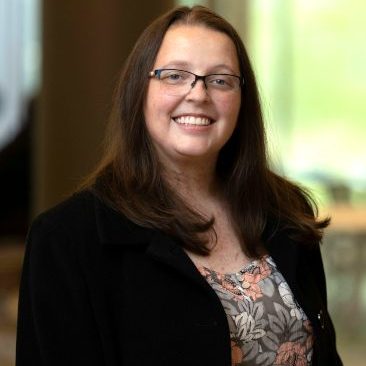Research Projects
Dr Lynette Pretorius is an interdisciplinary scholar whose research interlaces personal narratives with institutional systems to reveal how lived experience and academic structures mutually shape one another. Her work explores the intersections of doctoral education, academic identity, student wellbeing, AI literacy, and autoethnography, with a particular focus on inclusivity, creativity, and epistemic justice. She is particularly passionate about reimagining how educators and institutions can create more supportive, reflective, and empowering environments for graduate researchers. Committed to collaboration and co-creation, Lynette is currently working with a range of national and international scholars on several major research projects that reflect her dedication to building more inclusive and student-centred approaches to higher education.
AI and Epistemic Justice: Transforming Higher Education Through AI Literacy
This project reframes generative AI as a transformative and justice-oriented learning partner. With a strong focus on decolonising academic knowledge and promoting epistemic equity in higher education, this project is grounded in the belief that emerging technologies should empower rather than exclude. At its core, the project involves the development of an AI literacy framework and curriculum that not only introduces foundational concepts and ethical considerations but also positions generative AI as a tool for the democratisation of knowledge. Through this work, I aim to foster critical thinking, dismantle exclusionary academic norms, and contribute to more inclusive and creative learning environments where diverse perspectives are valued and empowered. This study has received funding from a Research Support Seeding Grant from the School of Curriculum, Teaching, and Inclusive Education at Monash University and a Researcher Development and Training Grant from the University of Southern Queensland. The findings from this study have been translated into publicly accessible learning resources available on YouTube, the AI Literacy Lab, as a free online course through KnE Learn, and in the Tertiary Education Quality and Standards Agency’s Gen AI Knowledge Hub. To date, this project has resulted in five publications that contribute to reimagining how educators and students can engage with generative AI in ways that challenge entrenched power structures and amplify diverse ways of knowing.
- ChatGPT as a Qualitative Research Partner
- The ETHICAL Framework for Responsible Generative AI Use
- Generative AI, Ubuntu, and the Decolonisation of Academic Communication
- The AI Literacy Framework for Higher Education
- Fostering AI Literacy
Behind the Academic Curtain: Exploring Wellbeing, Identity, and Belonging Among PhD Students
This project illuminates the lived experiences of PhD students as they navigate the often-unspoken cultural norms, hidden rules, and complex expectations of academic life. While doctoral study fosters deep disciplinary expertise and valuable transferable skills, early career researchers frequently encounter conflicting demands that can impact their wellbeing, identity, and sense of belonging. Grounded in a commitment to inclusion, reflection, and epistemic justice, this project examines how students’ cultural backgrounds, personal experiences, and social resources shape their academic journeys. By offering students a platform to share their own stories, I aim to reveal the invisible dynamics that influence how doctoral education is experienced in practice. Through a creative and compassionate lens, this work seeks to offer fresh insights for researchers, educators, and policymakers on how to build more supportive, inclusive, and person-centred research environments. This project has received funding from a Research Grant from the Higher Education Research and Development Society of Australasia and a Research Support Seeding Grant from the School of Curriculum, Teaching, and Inclusive Education at Monash University. To date, this project has generated seven publications that weave together narrative, theory, and reflection to uncover how educators can create spaces where doctoral students are empowered to flourish both personally and academically.
- Participants’ Pseudonym Choices as a Practice of Empowerment
- Psychological Capital in the PhD
- Diversity Statements and Holistic Stories as Data Tools
- Research and Teaching in a Pandemic World
- Narratives of Disempowerment in the PhD
- Influence of Imposter Syndrome on Academic Integrity in the PhD
- Wellbeing in Doctoral Education
From Page to Practice: Collaborative Writing Groups as Tools for Pedagogical Innovation in Doctoral Education
This project reimagines the role of collaborative writing groups as transformative spaces for academic social practice in doctoral education. Through structured peer collaboration, dialogue, and reflective inquiry, writing groups nurture essential competencies such as critical thinking, communication, and teamwork. Far more than sites for technical skill development, though, I aim to demonstrate that these groups can operate as vibrant learning communities where doctoral students engage in the often-hidden social practices of academia. Grounded in a commitment to co-creation and reflective practice, the project also investigates how writing groups can be pedagogical tools that foster scholarly identity and a sense of belonging. By weaving together research, practice, and community-building, this project illuminates how collaborative writing groups can serve as catalysts for more inclusive, holistic, and student-centred approaches to doctoral education. This project has received funding from the Monash-Warwick Alliance Education Fund and has generated five publications that contribute to reconceptualising pedagogical practices in doctoral education.

